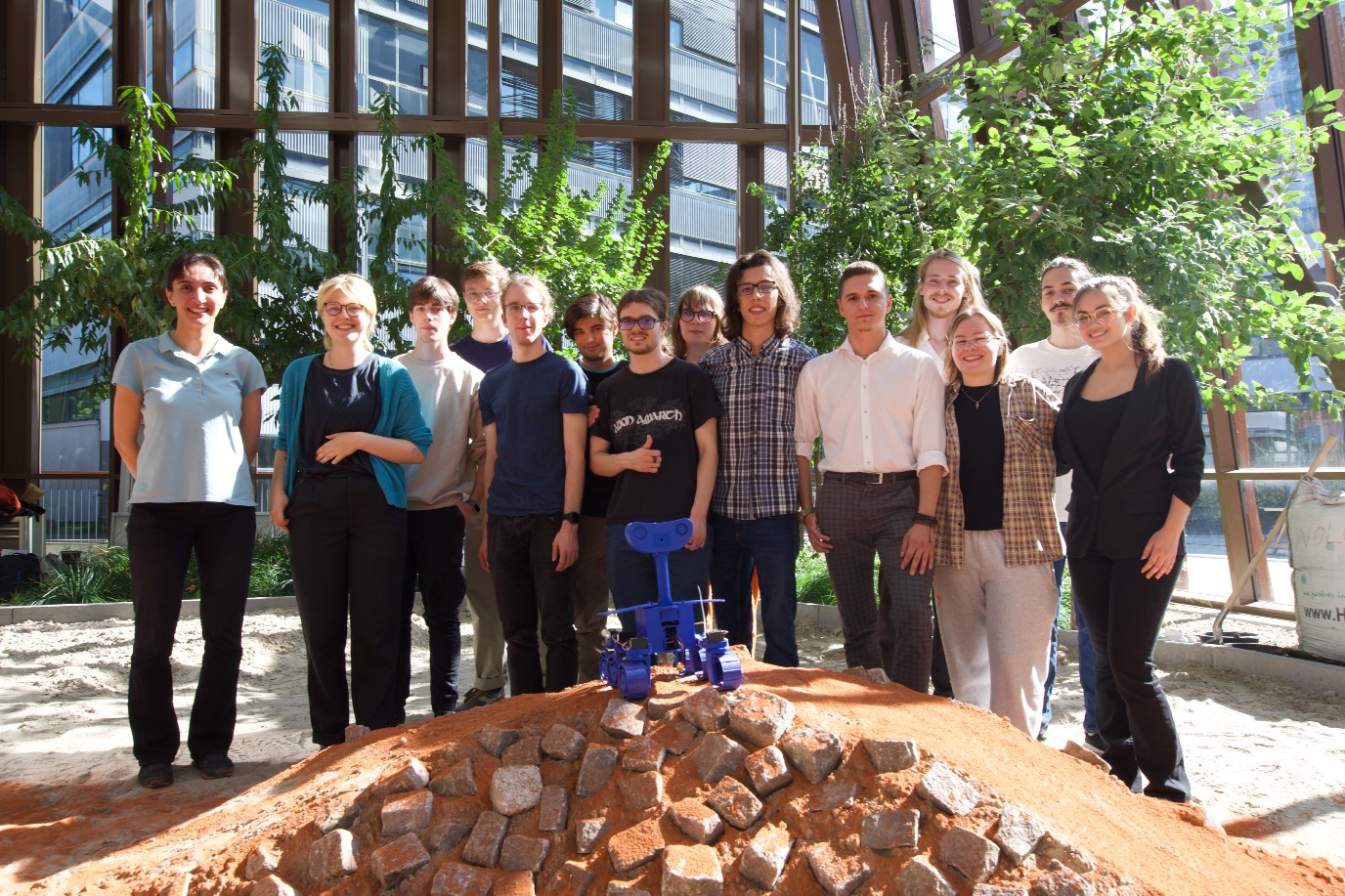RUG-studenten winnen Mars Rover Challenge
Het team Makercie van de RUG heeft de European Rover Challenge ( ERC ) in Polen gewonnen, een driedaagse wedstrijd waar studententeams van over de hele wereld aan meedoen. Op een speciaal Marscircuit - de zogenaamde Mars Yard - laten de deelnemers ter plekke of op afstand een door henzelf ontworpen Marsrover verschillende taken uitvoeren uit echte NASA- en ESA-missies. Het team van de RUG deed mee aan de wedstrijd vanaf de Zernike Campus. Het RUG-team is het eerste Nederlandse team dat deel heeft genomen aan de ERC.
Het evenement vond plaats op de Kielce University of Technology campus in Polen van 15 tot en met 17 september en werd dit jaar voor de negende keer gehouden.
Internationaal ‘tech’ team
Het team bestaat uit studenten van een breed scala aan studierichtingen: Artificial Intelligence, Computing Science, Natuurkunde, Scheikunde, Rechten, International Business en Wiskunde. En bestaat uit bijna vijftig leden uit dertien verschillende landen. De studenten die deelnamen vormen het software team van Makercie, aangezien wedstrijd gericht is op het programmeren en navigeren van de Rover in plaats van het bouwen ervan.

Gedreven
Belangrijkste drijfveer voor de RUG-studenten om mee te doen aan de wedstrijd is de drive om zichzelf te bewijzen en om een nieuwe groep bèta-technische medestudenten aan de RUG te inspireren. Deelnemer Helena (derdejaars Bachelor student Natuurkunde) vertelt dat de wedstrijd de teamleden de kans heeft gegeven hun vaardigheden in een hoog tempo te ontwikkelen: “We begonnen pas in maart ons serieus voor te bereiden op de wedstrijd. Ondanks het feit dat we niet alle kennis en kunde hadden, hebben we door onze drive in korte tijd alles geleerd wat we konden leren voor de wedstrijd. Het feit dat we gewonnen hebben laat zien hoe ver je met gedrevenheid kunt komen."
Wereldwijde competitie
Teams die deelnemen aan de wedstrijd op afstand gebruiken tijdens de competitie gestandaardiseerde apparatuur, waarmee ze via internet vanaf elke plek op aarde verbinding kunnen maken. Helena legt uit dat ze het ontwerp van de Rover krijgen: “Vervolgens moesten we zelf de 3-D print maken en de elektronica in elkaar zetten. Na twee rondes kwamen we in de laatste competitieronde terecht met 15 andere teams.”
Winnaars
De winnaar van de competitie is degene die de software die nodig is voor de missie het meest betrouwbaar klaarmaakt. Daarnaast moet je laten zien dat je sterk bent in teammanagement, reageren op kritieke situaties en change management. Helena: "We zijn erg blij dat we er als nieuw team in geslaagd zijn om het op te nemen tegen andere meer ervaren en gevestigde teams. Het winnen van deze uitdaging maakt ons nog enthousiaster om het team in de toekomst verder te ontwikkelen en deel te nemen aan andere wedstrijden. We willen dat ons team een plek wordt voor iedereen die geïnteresseerd is in ruimtevaart of robotica."
Het team van de RUG kreeg voor deelname steun van het Innovatie Cluster Drachten, het Engineering and Technology Institute Groningen en The Faculty of Science and Engineering (RUG). Makercie neemt deel aan de volgende editie van de ERC en aan de University Rover Challenge in Utah in de VS in 2024.
Lees meer op de website van ScienceLinx.
Meer nieuws
-
17 februari 2026
De lange zoektocht naar nieuwe fysica
-
10 februari 2026
Waarom slechts een klein aantal planeten geschikt is voor leven
